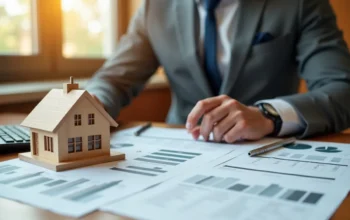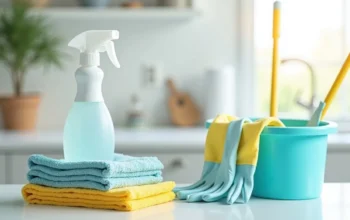
Being a landlord comes with a multitude of responsibilities that go beyond simply collecting rent. From maintaining a safe living environment to complying with legal requirements, landlords play a crucial role in the rental market.
In this article, we’ll explore six essential responsibilities that every landlord should be aware of to ensure a successful and lawful rental experience for both themselves and their tenants.
Contents
Providing a Safe and Habitable Living Space
Landlords are responsible for ensuring their rental properties are safe and fit for human habitation. This includes maintaining essential services such as electricity, heating, and plumbing in good working order. Regular inspections and prompt repairs are necessary to address any potential hazards or maintenance issues.
Landlords must also ensure the property is free from health risks such as mold, pests, and structural defects. Installing and maintaining smoke alarms and carbon monoxide detectors is crucial for tenant safety.
By prioritizing property safety, landlords not only fulfill their legal obligations but also create a positive living environment for their tenants.
Maintaining the Property’s Structure and Exterior
The responsibility for maintaining the property’s structure and exterior falls squarely on the landlord’s shoulders. This includes repairing and maintaining the roof, walls, windows, doors, and other structural elements. Landlords must also ensure proper functioning of gutters, drains, and other external systems.
Regular inspections and preventive maintenance can help identify potential issues before they become major problems. Addressing these concerns promptly not only preserves the property’s value but also demonstrates a commitment to tenant satisfaction.
Remember that a well-maintained exterior contributes to the overall appeal and longevity of the rental property.
Complying with Legal and Regulatory Requirements
Landlords must stay informed about and comply with various legal and regulatory requirements. This includes obtaining necessary licenses, such as HMO licenses for properties with multiple occupants. Landlords are also responsible for conducting right-to-rent checks to ensure tenants have the legal right to live in the country.
Protecting tenants’ deposits in a government-approved scheme is another crucial legal obligation. Landlords must provide tenants with specific information, including the property’s Energy Performance Certificate and the government’s “How to Rent” guide.
Staying up-to-date with changing regulations helps landlords avoid legal issues and maintain a professional rental operation.
Respecting Tenant Privacy and Property Access
While landlords have the right to access their property, they must respect tenant privacy. Providing proper notice before entering the property for inspections or repairs is essential. The specific notice period is typically outlined in the tenancy agreement and often ranges from 24 to 48 hours.
Landlords should balance the need for property maintenance with the tenant’s right to quiet enjoyment of their home. Unauthorized or excessive entry can lead to strained relationships and potential legal issues.
By respecting boundaries and communicating effectively, landlords can maintain a positive rapport with their tenants while fulfilling their responsibilities.
Managing Financial and Tax Obligations
Landlords must report rental income and maintain accurate expense records. Some areas require business licenses for rentals. Staying organized and consulting a tax professional ensures compliance.
Property tax obligations must be met consistently, and landlords should be aware of any local rent control or stabilization laws that may affect their ability to increase rents. For mortgaged properties, landlords typically need to inform their lender that the property is being rented out.
Proper financial management ensures compliance and contributes to a sustainable rental business.
Handling Repairs and Maintenance Requests
Responding promptly to repair and maintenance requests is a critical responsibility for landlords. Landlords must maintain plumbing, heating, electrical systems, and appliances. A reporting system and reliable contractors ensure timely repairs.
Regular property inspections can help identify potential issues before they become major problems. By being proactive in maintenance, landlords can prevent small issues from escalating into costly repairs. Timely responses to maintenance requests not only fulfill legal obligations but also contribute to tenant satisfaction and retention.
Conclusion
Being a responsible landlord requires a commitment to property maintenance, legal compliance, and tenant satisfaction. By fulfilling these essential responsibilities, landlords can create a positive rental experience, protect their investment, and build a reputable rental business.
Staying informed about changing regulations and maintaining open communication with tenants are key to success in the ever-evolving rental market. By prioritizing these responsibilities, landlords can ensure a mutually beneficial relationship with their tenants and a thriving rental property portfolio.



